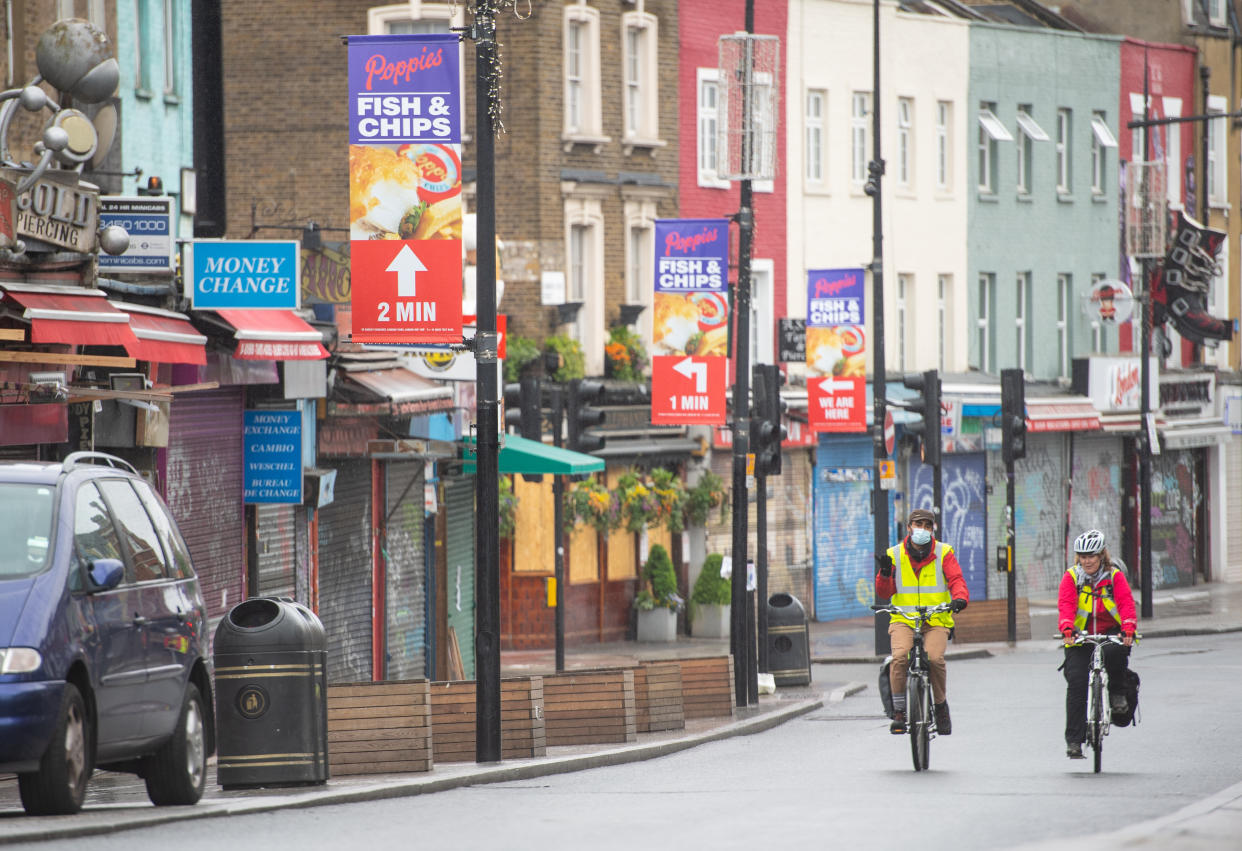Coronavirus: Insolvencies hit lowest level in a year as crisis began

Individual and company insolvencies fell to their lowest level in more than a year during the first quarter of 2020.
Some 27,847 personal insolvencies and 3,883 company insolvencies were recorded between January and March this year.
Most of the figures pre-date the impact of coronavirus and experts warn although figures may initially drop further, they could spike towards the end of the year.
Part of the drift could be due to insolvency practitioners and courts being unable to process cases in the usual way towards the end of March, according to the Insolvency Service.
Personal insolvencies fell by 3.9% in the first quarter of 2020 compared to the fourth quarter of 2019, and decreased by 11%, compared with the first quarter of 2019. But bankruptcies were slightly up , accounting for 15% of personal insolvencies.
READ MORE: UK government crisis spending to cost £104bn as borrowing soars
Individual voluntary arrangements were the most common insolvency, accounting for 60% of cases, followed by debt relief orders (DROs), which made up 25%.
Meanwhile corporate insolvencies fell by 8.5% in the first quarter of 2020 compared to the first quarter of 2019. Construction remained the industry with the highest number of insolvencies in the past year.
Alec Pillmoor, a personal insolvency partner at audit, tax and consulting firm RSM, said he expected to see an increase in personal insolvency in the longer term.
“We would expect two spikes, firstly as the lockdown is eased and some of the sole trader and partnerships find that their business models are no longer viable and they will unfortunately fail; and later when businesses have managed to retain their markets, some will inevitably over-trade to compensate for recent losses and have insufficient resources to pay for this level of trading.”
READ MORE: Oasis and Warehouse collapse with 1,800 job losses
Mike Cherry, chair of the Federation of Small Businesses, said it was crucial that government continued to provide financial support until the crisis ended, to prevent firms from collapsing.
“These are hugely worrying times for small businesses, and for many this is going to be a difficult period for much of the year, if we want to prevent more small firms who are the backbone of the British economy, from going under, then the right support must always be available.”

